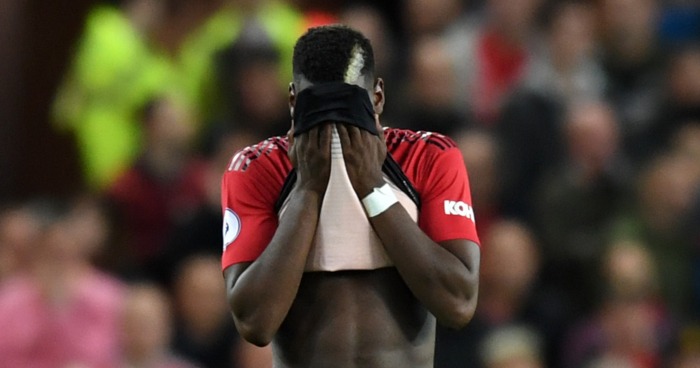Depression Is Not a Lack of Imān
A reflection on depression through Islam and football, showing it's not a sign of weak faith. Featuring insights from top players and rooted in Islamic teachings, this post calls for compassion and understanding.
ZR
7/2/20253 min read


In recent years, more and more footballers have begun opening up about their struggles with mental health including depression and anxiety. What’s been equally revealing is how misunderstood these conditions still are in many communities, including our own.
Too often, depression is casually dismissed with phrases like “just be grateful” or “it’s a lack of imān.” But this is not only incorrect, it can be deeply damaging. Yes, Islam teaches us to turn to Allah ﷻ in times of difficulty, and to find solace in patience, prayer, and remembrance. These are powerful remedies. But that doesn’t mean that strong faith makes someone immune from suffering.
Take Álvaro Morata. Despite captaining Spain to a European Championship win, he recently admitted to suffering from panic attacks, blurred vision, and an inability to even lace his boots at times due to the toll of mental illness. He said, “I had everything and I still ended up like that. It doesn’t depend on what your life is like.”
Paul Pogba, during his time at Manchester United, said he too experienced depression particularly under a difficult management period. He explained, “Sometimes you don’t even know you have depression, you just want to be isolated. We earn a lot of money… but that doesn’t prevent you from going through these moments in life.”
Jesse Lingard, another former United player, described how in 2019, he reached such a low point that he didn’t want to go outside or even be on the pitch. He was caring for his siblings while his mother was seriously unwell and admitted to a facility. He turned to alcohol to numb his emotions and felt like a shadow of himself. He later said, “You’re not soft for talking about mental health. You’re human.”
📿 What Does Islam Say?
Our dīn is not one that dismisses grief. Even our beloved Prophet ﷺ went through deep emotional pain. After the passing of Khadijah (RA) and his uncle Abu Tālib, he endured what we now refer to as ʿĀm al-Ḥuzn — the Year of Sorrow. Allah ﷻ Himself acknowledged this hardship:
“Indeed, We know that your heart is distressed by what they say.”
[Qur’an 15:97]
And in another moment of grief, the Prophet ﷺ said:
“The eyes shed tears and the heart feels sorrow, but we do not say anything except what pleases our Lord.”
[Bukhārī]
These emotions are not a sign of weakness. They are human. Even the Prophet ﷺ would seek refuge from anxiety and grief in his daily duʿāʾ:
“O Allah, I seek refuge in You from anxiety and grief…”
[Bukhārī]
Faith helps us cope, but it doesn't cancel the pain.
🧠 Depression Is Not Always Spiritual
It’s important to understand that depression is not just sadness. It can stem from many sources: childhood trauma, chronic stress, grief, or even biological causes like chemical imbalances in the brain. That’s why saying “just pray more” though well-intended, isn’t always helpful, and can sometimes cause more guilt or shame.
A person with strong īmān can still face depression. Just like a person with strong īmān can get diabetes, or break a leg. Islam never told us to ignore illness, physical or emotional. The Prophet ﷺ said:
“Make use of medical treatment, for Allah has not made a disease without appointing a remedy for it.”
[Abū Dāwūd]
That includes seeking help from trusted mental health professionals when needed. alongside duʿāʾ, dhikr, ṣabr, and reliance on Allah ﷻ.
🧕🏽 A Unique Challenge for Muslim Players
Recent research also shows that Muslim players in grassroots football are increasingly affected by Islamophobia and not just from the public, but sometimes from opposing teams and even within management. This contributes to feelings of alienation, anxiety, and depression. Many of these players suffer in silence, fearing judgement or being misunderstood.
One participant said:
“There aren’t many Muslim professional players, and you need to ask yourself why.”
This is not just about football it’s about how our communities treat those struggling with unseen wounds. Judgement adds weight to what they’re already carrying. Sometimes it’s not the illness that breaks a person… it’s the silence and shame around it.
🌿 Moving Forward
We need a balanced approach rooted in our faith. One that encourages taqwa, ṣabr, dhikr, and duʿā’, while also recognising mental illness as real and worthy of treatment. Depression becomes a sickness when it lingers and interferes with daily life and responsibilities and at that point, sharīʿah encourages treatment, not blame.
As Ibn al-Qayyim رحمه الله and others have written, natural remedies like talbīnah were used by the Prophet ﷺ to bring comfort and relief in times of sadness.
“Talbīnah brings comfort to the sick person and lessens grief.”
[Bukhārī, 5101]
If you’re suffering right now:
You are not weak.
You are not a bad Muslim.
You are not alone.
And if someone around you is struggling don't rush to diagnose their īmān. Offer your presence, your compassion, and your duʿā’.
May Allah ease the burdens of every believer, grant healing to the broken-hearted, and make our community one of mercy, not judgement.
Āmīn.
Community
Connecting fans worldwide, celebrating heritage and values.
Contact
info@mumsc.org
© 2025. All rights reserved.
Powered by IT CORE SERVICES LTD
